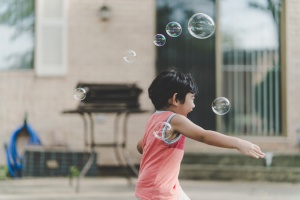 I’ve been thinking a lot this week about what my students are hoping for each day when they come to school. We’re in the midst of one of the busiest times of year and it’s easy to let yourself get pulled away from the big stuff when there’s a daily, unrelenting push of smaller stuff. Assessments, paperwork, meetings…in the vast pool of what makes us human, those things are the minutiae. Is it important that we make sure children are learning academic skills? Absolutely. Of course. But that’s the obvious part and because it’s so obvious to adults, so much more easily quantifiable, it often takes precedence over everything else.
I’ve been thinking a lot this week about what my students are hoping for each day when they come to school. We’re in the midst of one of the busiest times of year and it’s easy to let yourself get pulled away from the big stuff when there’s a daily, unrelenting push of smaller stuff. Assessments, paperwork, meetings…in the vast pool of what makes us human, those things are the minutiae. Is it important that we make sure children are learning academic skills? Absolutely. Of course. But that’s the obvious part and because it’s so obvious to adults, so much more easily quantifiable, it often takes precedence over everything else.
My students are proud when they learn something new. They are even prouder when they create something new. They love to use the word teamwork and to show me how they work together. They want me to know they’ve listened, they get it. “Come see!” is a phrase I hear all day long. I’m taken by the hand, little fingers rest on my arm. Maybe I can hang it up. Take a picture of it. But it’s enough that I come see. Or it’s a story, an experience that they urgently need me to hear. Or they just need a hug, a high five, to be acknowledged in some way.
This is what’s important to them. In pre-k, there are typically eighteen to twenty-two little humans who need us to see them. They care about our opinion. They believe our words and our actions. They trust us to keep them safe. They need to know that we love them, that we value them, that we’re listening. These are not my children, except that they are. For eight hours everyday, teachers and students are like little family units. It can be exhausting, but it can also be the most magical thing in the world. It’s what a real connection feels like and it’s bigger than any new iPad app or education buzzword will ever be.
You can always tell which students need a little extra from you. The reasons they’re not getting that need met at home are all over the map, but the result is the same. It’s why even if we’re tired, even if we’re busy, making time to listen, to see, and to hug a little longer is what really matters.
If you do it right, those academic skills can lend themselves to this. They can empower, engage, nurture and foster genuine, authentic growth that’s of true value both now and in the child’s future. But it’s frighteningly easy to do it wrong. That mandatory assessment’s scores, no matter how flawed, justify your program’s existence, earn you grant funds, and will be posted for everyone to see and judge. Because your department heads’ jobs are on the line too, the format of your daily interventions is no longer negotiable. If a student started in your class not speaking English, if they’re in the lengthy referral process for special education services, if they’re homeless or in foster care or part of a child protective services investigation, that doesn’t show up in the data. When we do it wrong, the scores and the paperwork can become so disconnected from the actual children they represent that they’re linked by little more than a name.
Data doesn’t have to be the enemy, nor does teaching more concrete academic skills to young children. It can be valuable, useful, integral to instruction and those skills can be embedded in play and discovery and exploration. They don’t have to push out things like critical and creative thinking and the so often overlooked social/emotional, communication, and collaboration skills we all need to live here on this earth together. But it feels like with each new initiative and mandate, we’re doing less with children at the forefront of our decision making and more for what lawmakers somewhere can easily enter into a graph. We need to revisit the outcomes we are looking for. We need to look at what research tells us matters in the long-term, not just what is going to look good on a poorly designed test. And we need to be willing to acknowledge and value what’s important to children.
Adults spend quite a lot of time professing to care oh so much about young children. We use them to advance political agendas. We find ways to profit off their education system. We’re outraged when the agencies we refuse to fund fail them. But it’s us, the collective us, who is really failing them. We’ve forgotten that as small as they are, they’re still thoughtful little humans with a near infinite well of amazing ideas and fragile hearts that they place again and again into our hands.
Children are resilient but that doesn’t mean our actions don’t leave a lasting impact. As many teachers will attest, it is becoming harder and harder to look into their eyes and feel like we’re consistently doing right by them. We often have to ignore mandates and break the rules to do it. We have to filter new initiatives through the needs of the children in front of us. Far more of us do just that than I think anyone realizes but it’s not always without consequences.
If you want teachers who care enough about your children to stand up for them in the classroom, we need you to stand up with us. We need you to sift through the jargon and talking points to find the facts. We need you to speak the truth when you hear people demeaning and disrespecting teachers or trying to turn us into martyrs or the ever mythic superhero teachers who don’t need livable wages, reasonable job expectations, and sound policy decisions. And when you join us in looking for a better way, we need you to remember what’s important to the children we all claim to care so much about.
 Important was one of our vocabulary words earlier this year and it’s still one of the most used words in my classroom. The kids feel that word deep in their bones. They use it when they want to express something that really matters to them and the conviction with which they say it is at once adorable and inspiring. They know what’s important. They just need us to pay better attention.
Important was one of our vocabulary words earlier this year and it’s still one of the most used words in my classroom. The kids feel that word deep in their bones. They use it when they want to express something that really matters to them and the conviction with which they say it is at once adorable and inspiring. They know what’s important. They just need us to pay better attention.